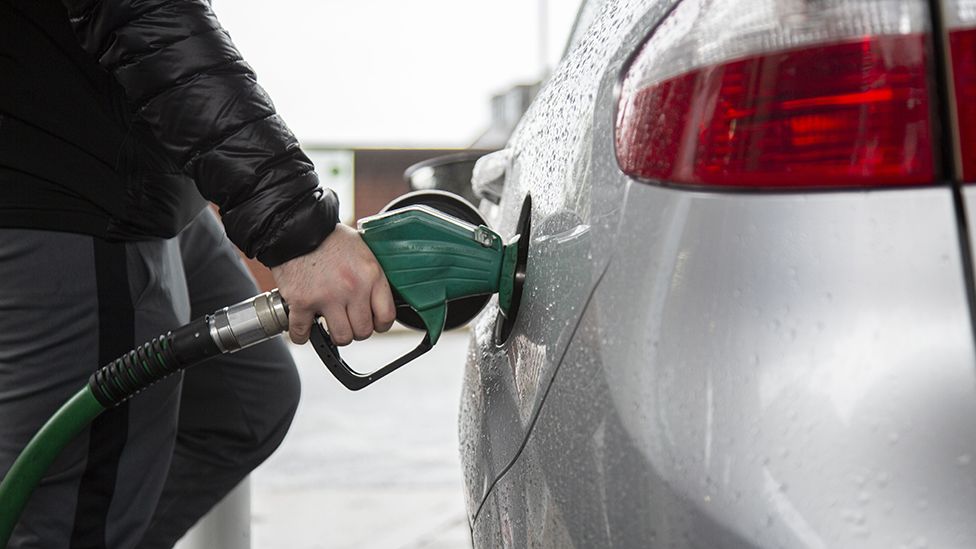Image source, Getty Images
Ukraine has called for sanctions to be expanded to include a ban on Russian oil exports.
But if an oil ban were to go ahead, Russia has warned it could cut off gas supplies to other countries.
Could there be sanctions on Russian oil and gas?
The West has imposed a series of economic sanctions on Russia following the invasion of Ukraine, but is yet to sanction oil directly.
US Secretary of State Antony Blinken has said there are “very active discussions” about banning oil imports from Russia, while at the same time “maintaining a steady global supply of oil”.
But Germany and the Netherlands rejected the plan on Monday.
Germany is especially reliant on Russian gas so is vulnerable to any restrictions Russia places on gas flows.
Russia has said it may close its main gas pipeline to Germany if the West goes ahead with an oil ban.
Following the invasion of Ukraine, the approval and opening of the Nord Stream 2 gas pipeline from Russia to Germany was halted.
But Russian gas is still being imported across the world through other routes.
How much oil and gas does the world get from Russia?
Russia is the third biggest producer of oil in the world, behind the US and Saudi Arabia.
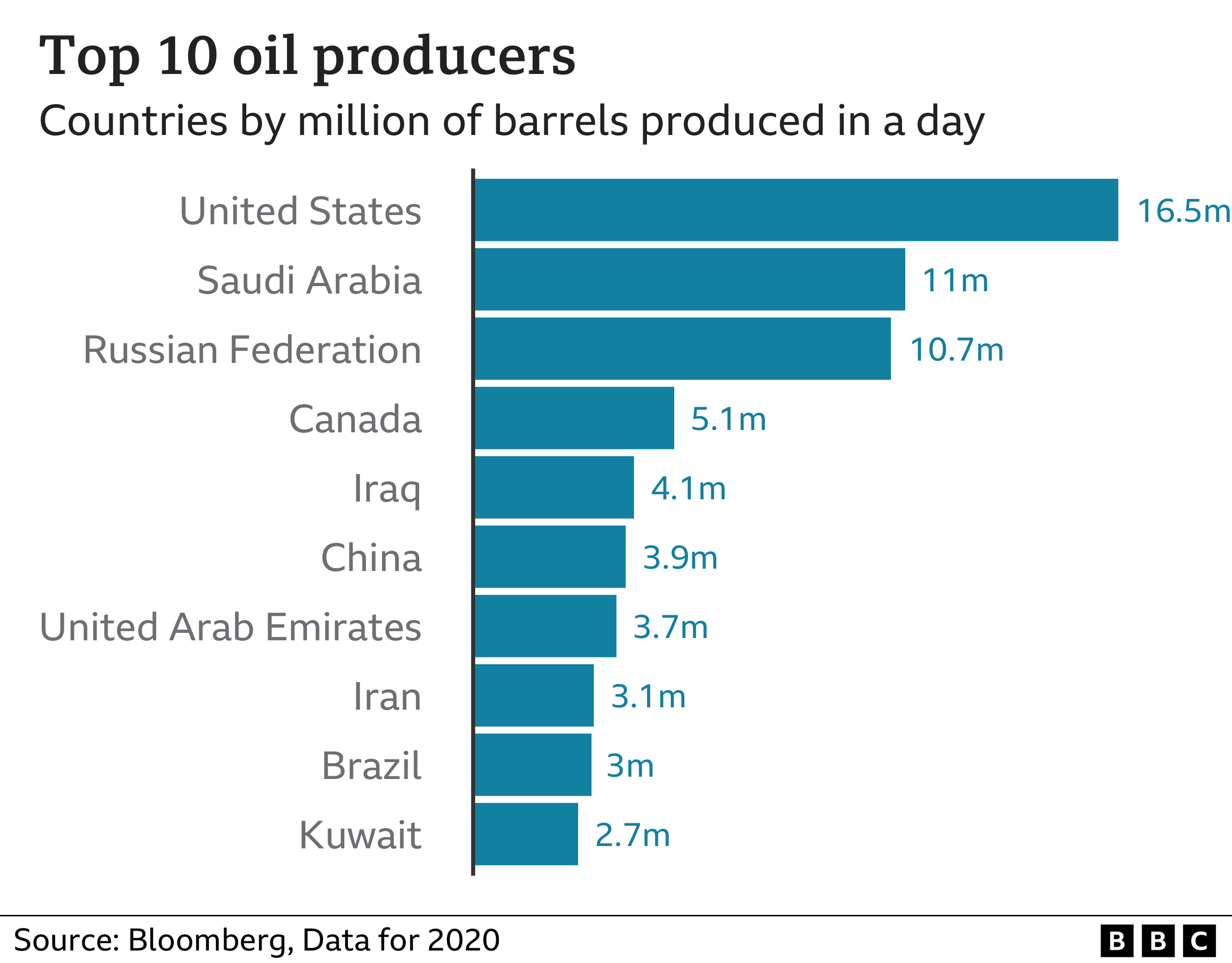
Of about five million barrels of crude oil exported each day, more than half of that goes to Europe.
The US is less reliant on Russian oil, with about 3% of its imported oil coming from Russia in 2020.
Much of Europe is heavily reliant on Russian gas, with Russia supplying about 40% of the EU’s natural gas imports.
Could the world cope without Russian oil and gas?
Gas and oil prices have already risen sharply and would rise yet further if Russia halted exports.
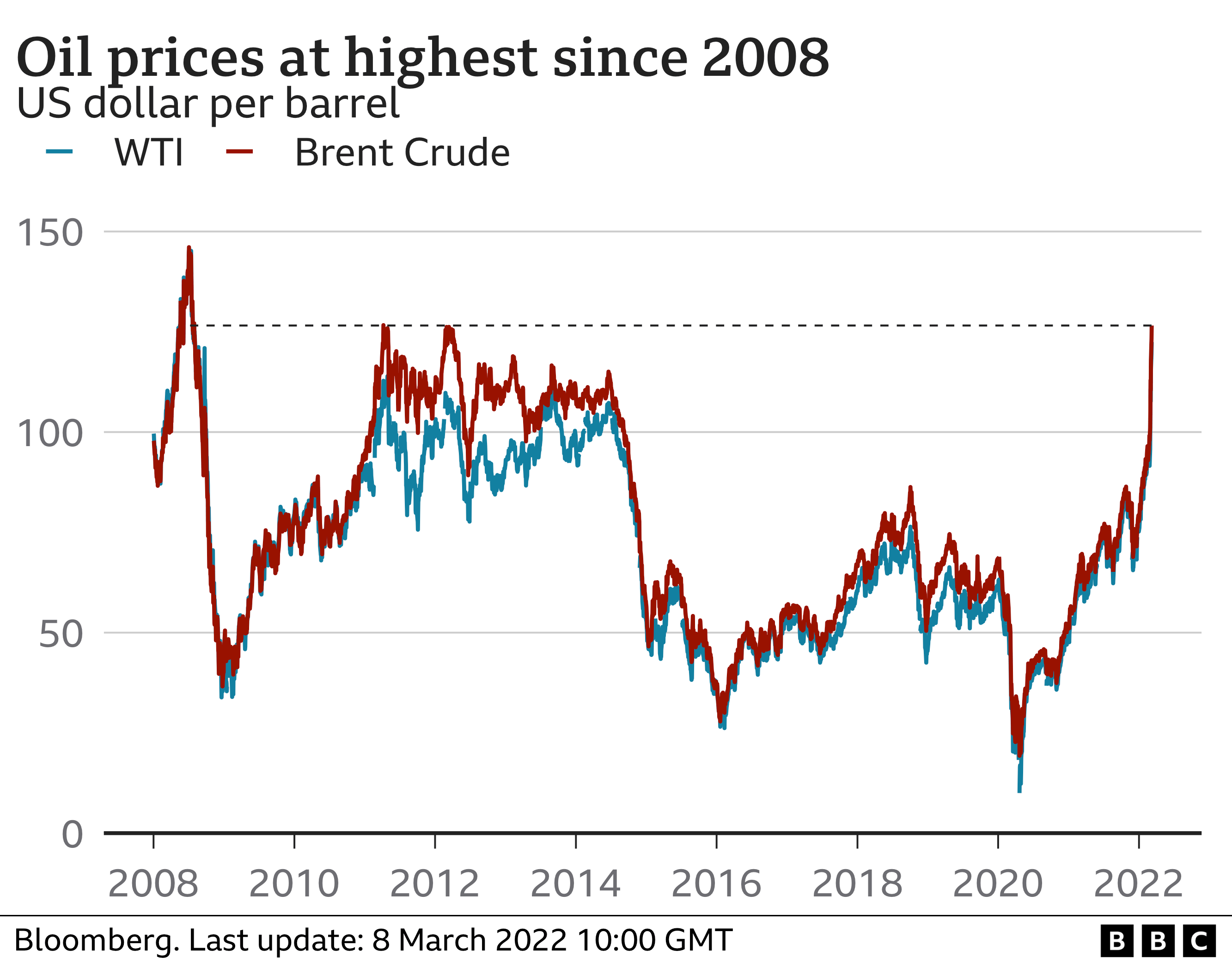
Deputy Russian Prime Minister Alexander Novak said rejecting Russian oil would lead to “catastrophic consequences for the global market”, and that it would cause prices to rise to more than $300 a barrel.
Countries would have to get more supplies from elsewhere – which would be especially tricky for gas.
If Russia were to halt gas supplies, Italy and Germany would especially suffer as they get the largest supplies from Russia.
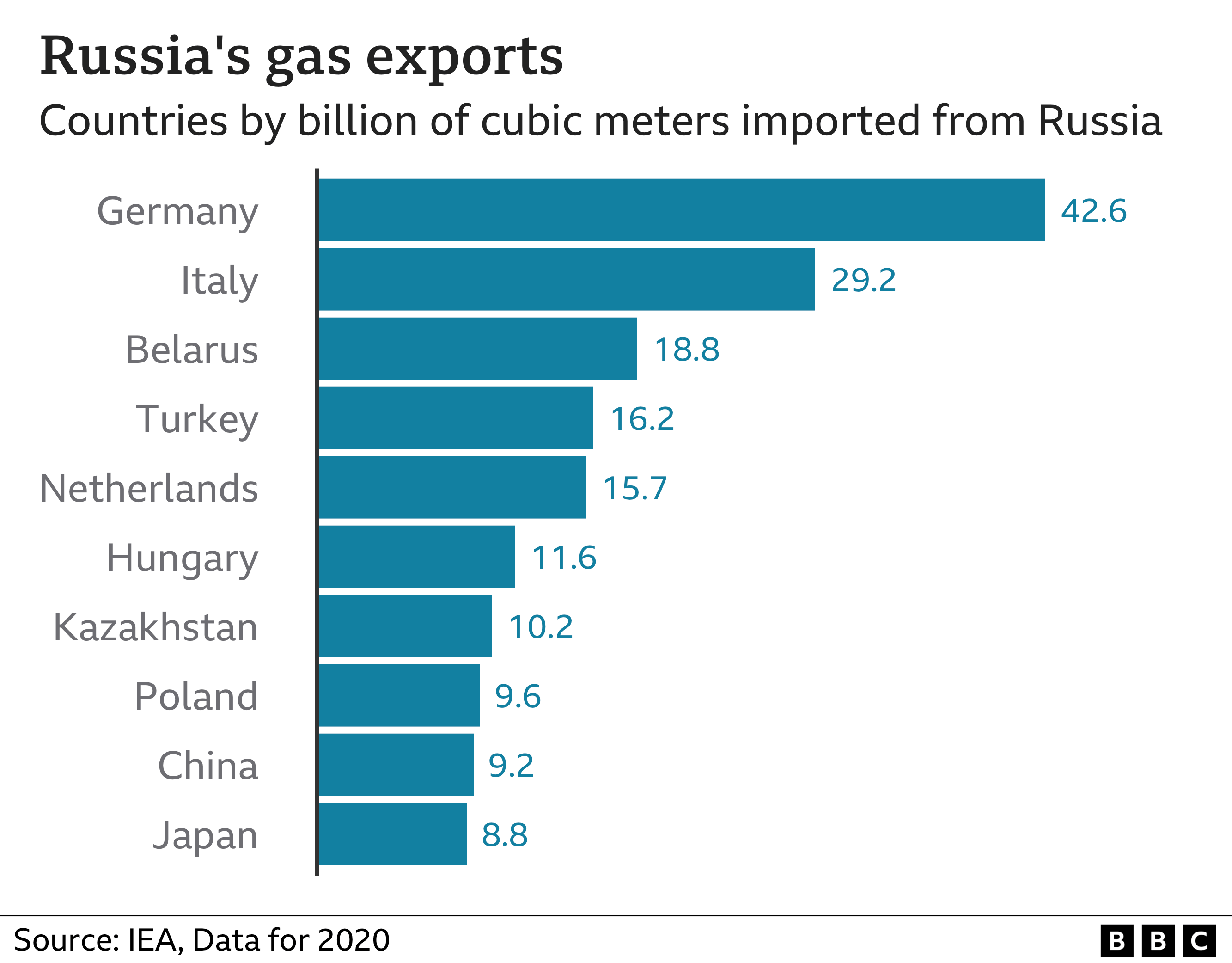
Russia only provides about 5% of the UK’s gas supplies, and the US doesn’t import any Russian gas.
However, prices in the UK and US are still up significantly due to the knock-on effect of supply shortages elsewhere in the world.
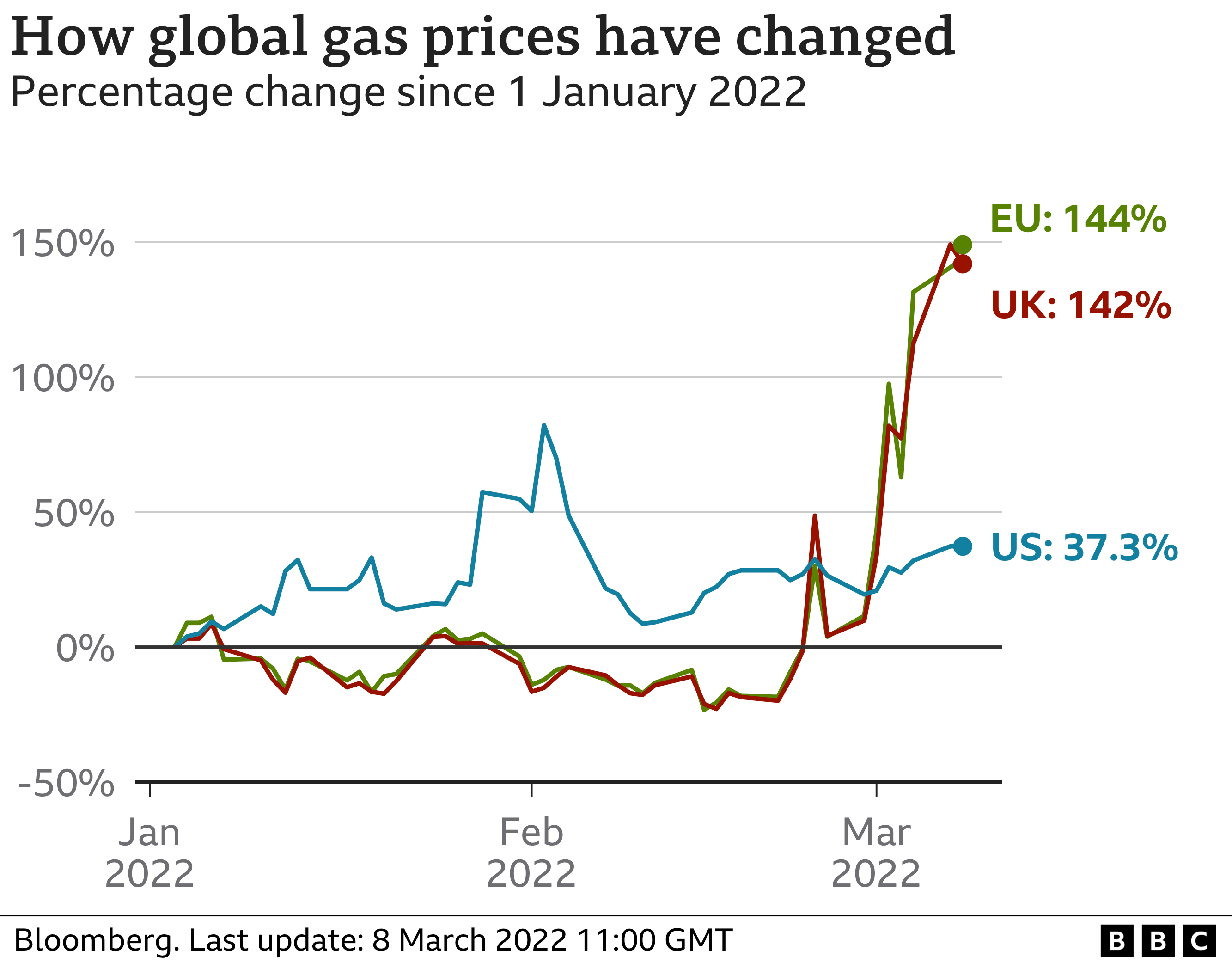
Finding alternative sources is not easy.
“It’s harder to substitute gas because we have these big pipes that are taking Russian gas to Europe,” says Ben McWilliams, an energy policy research analyst.
“On oil, it should be easier as it’s not so many pipelines – there are some coming from Russia but there’s also a lot of shipments from elsewhere.”
Could alternative sources of energy be used?
The think tank Bruegel predicts that if Russia were to stop supplies to Europe, then Europe could possibly import more liquefied natural gas (LNG) from the US.
It could also ramp up the use of other energy sources, but doing so is not quick or easy.
“Renewables take time to roll out so in the short term this is not a solution,” says research analyst Simone Tagliapietra.
“So for next winter – what can make a difference is fuel switching such as opening up coal fired power plants, as Italy and Germany have plans to do in case of an emergency.”
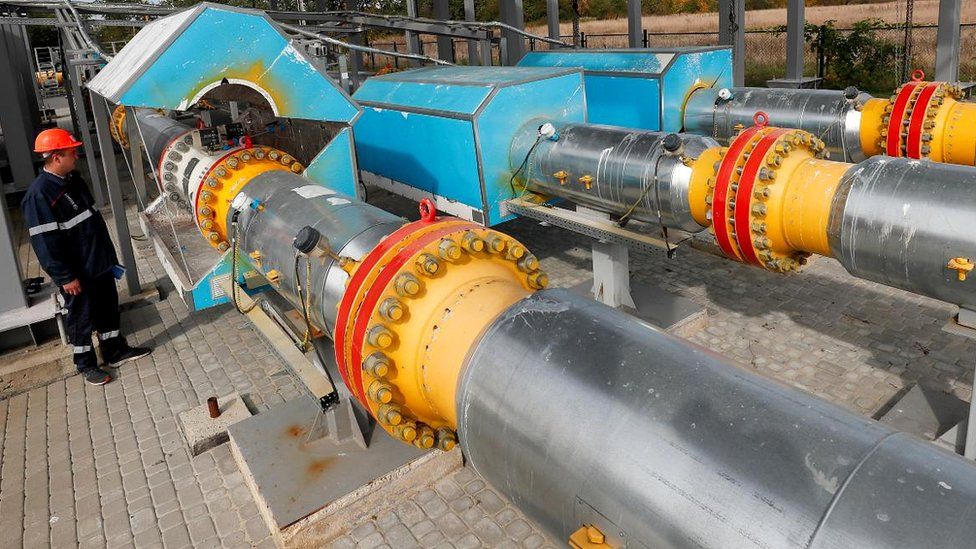
Image source, Reuters
Another way to respond would be to reduce the demand for energy.
“I think if we’re in a world where Russian oil and gas stop flowing to Europe then we’re going to need rationing style measures,” says Mr McWilliams.
“You’ve definitely got to speak to certain industries, and part of the conversation now is can we tell households to turn their thermostats down one degree which can save a significant chunk of gas.”
EU leaders are set to unveil a plan on Tuesday to reduce their dependency on Russian gas.
Where else could oil and gas come from?
The US has been asking Saudi Arabia to increase its oil production, but it has rebuffed previous US requests to boost output in order to reduce oil prices.
Saudi Arabia is the biggest producer in Opec, the oil cartel which accounts for about 60% of the crude oil traded internationally. Because of this Opec has a key role in influencing oil prices.
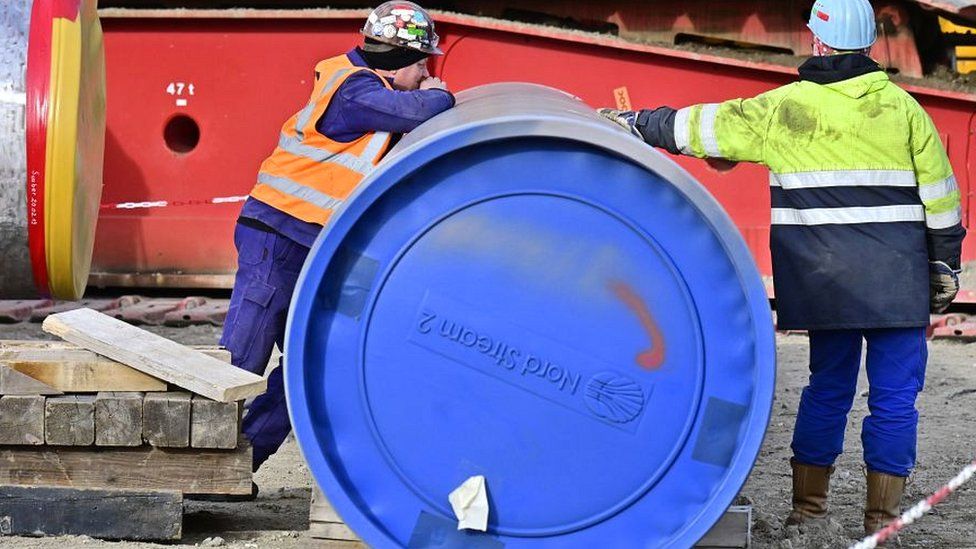
Image source, AFP
Russia is not in Opec but has been working with it since 2017 to place limits on oil production, in order to maintain earnings for producers.
The US is also looking at relaxing Venezuela’s oil sanctions. It used to be a key US oil supplier, but recently Venezuela has largely been selling its oil to China.
Europe could turn to existing gas exporters such Qatar – or Algeria and Nigeria, but there are practical obstacles to quickly expanding production.
What could happen to my heating and fuel bills?
Consumers will face rising energy and fuel bills as a result of this war.
In the UK, household energy bills have been kept in check by an energy price cap.
But bills will rise by £700 to about £2,000 in April when the cap is increased. They are expected to reach about £3,000 when the cap is increased again this autumn.
UK petrol and diesel prices have also soared and petrol is expected to reach 175p a litre as the war continues.
In the US, petrol costs have reached their highest levels since 2008, with the American Automobile Association saying that pump prices had jumped by 11% over the past week.



















